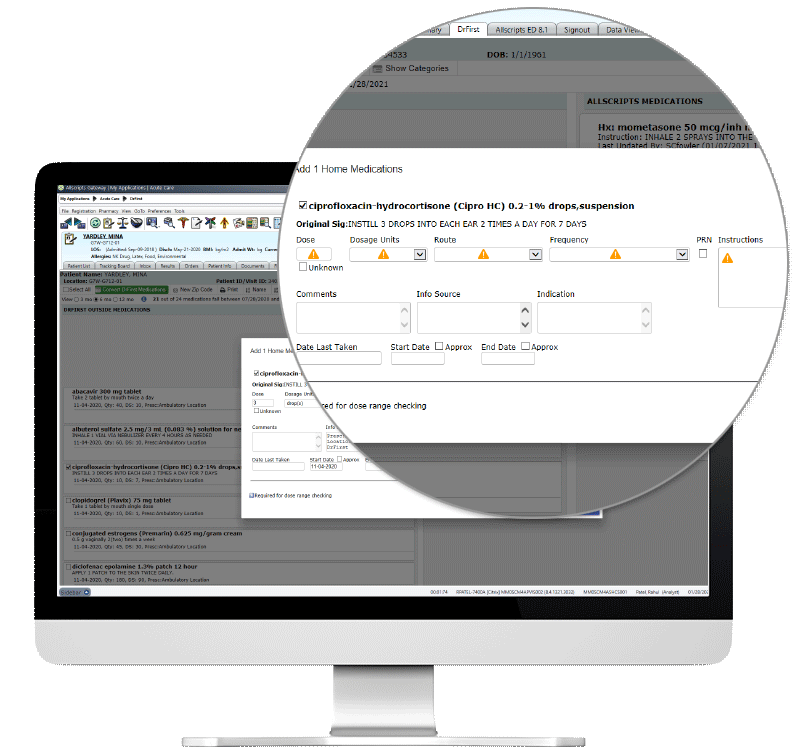Medication Management
Hit ENTER to search or ESC to close.
Medication Management
An Old Problem Has New Solutions

A study by the National Council for Prescription Drug Programs showed that a lack of standardization puts patients at risk.
The Research in Social and Administrative Pharmacy journal found secondary medication history sources lack key data.
Research at University of Michigan College of Pharmacy indicated 84% of all sigs need to be edited by pharmacy staff.
Mari Savickis, VP of Public Policy at CHIME, looks at new policies from the U.S. Department of Health & Human Services to improve medication reconciliation at hospitals and health systems.
Pharmacy leaders from Baptist Health South Florida and West Tennessee Healthcare share how accurate medication history data (or a lack thereof) makes a significant difference in patient care.
Jeffrey Schnipper, M.D., M.P.H., of Brigham and Women’s Hospital and MARQUIS Med Rec Collaborative, introduces best practices for obtaining and documenting a patient’s medications.
Nurses, pharmacists, IT staff, and CMIOs all agree that med rec programs at hospitals and health systems can greatly benefit from technology enhancements. Improving medication history data quality is a logical starting point and can pay big dividends: Improve staff efficiency and patient safety, Reduce care team burnout, and Avoid ADEs and 30-day readmissions.
Take a look through our IT Investment Calculator or EHR integrations to see how DrFirst can help modernize med rec at your organization.
Based on research and conservative industry averages, we've put together a list of projections to quantify the return on improving med rec at your hospital or health system. Tell us your bed count and EHR, and we'll share:
Your clinicians deserve access to clear, reliable medication history before prescribing new medications to their patients. That’s why we created better workflows for Allscripts, Cerner, and Epic EHRs that upgrade medication reconciliation modules, improve adherence scoring, and support population health management.
